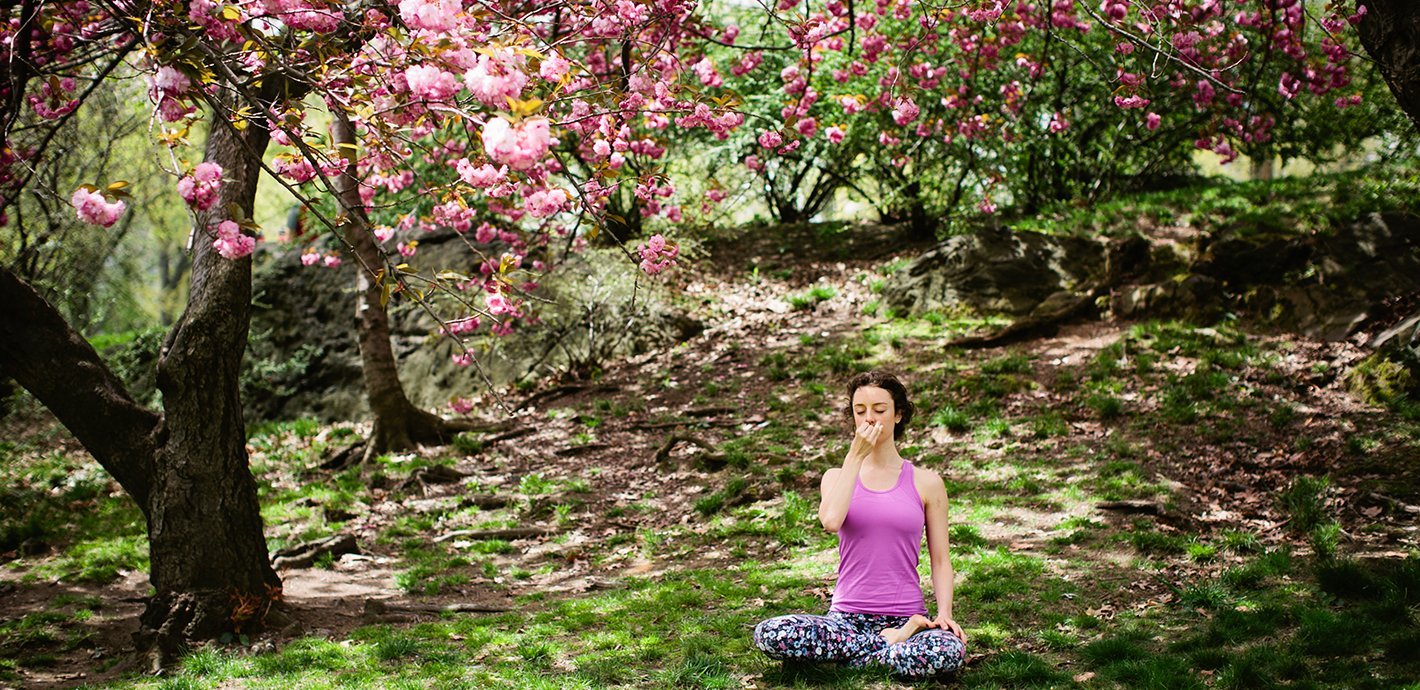The breath plays an important role in meditation, connection, and reflection across a variety of spiritual traditions. In fact, the fine line between the word “breath” and “spirit” in some of these traditions ends up blurred, essentially making them one and the same. In Hebrew it is the word “ruach.” In ancient Greek “pneuma.” In Latin it is “spiritus.” In all these forms there’s an implicit acknowledgment that the breath is overtly spiritual. It connects us to our best self and serves as the perfect anchor into reality.
The story of the Buddha begins with him indulging in extreme luxury before discovering the multitude of suffering around him, at which point he goes to the other extreme of asceticism. He literally tortured himself in the name of spirituality. Having learned a wide variety of meditative techniques, he eventually sat down under a tree and did a simple meditation on the breath. That meditation is what led to nirvana or enlightenment. He didn’t transcend the world and go elsewhere. He became awake to the nature of the way things are. The breath anchored him in the present moment so that he could see past his own confusion and connect to his own sense of inner peace.
Related: Yoga Breathing for Stress Relief with Sharath Jois
The story of the Buddha is not meant to be some outlandish tale that implies that we should worship him; the Buddha serves as an example. If he discovered peace by resting with the natural flow of his breathing so can we! We are not different from him. We possess the same ability to wake up spiritually. Just as the Buddha studied and then rested with the breath, so can we.
Many years later, Buddhist teacher, Tilopa, imparted six words of profound advice to his student Naropa. The author and Tibetan Buddhist teacher Ken McLeod has translated these six words for us from Tibetan into English. The short translation is
- Don’t recall
- Don’t imagine
- Don’t think
- Don’t examine
- Don’t control
- Rest
In other words, if you want to meditate on the breath all you have to do is relinquish thoughts about the past or future (in fact, drop all thoughts altogether) and don’t try to overanalyze or manipulate your experience. In this sense, Tilopa could have shortened this practice advice to just one word: relax! Because the breath is always with us, we can simply rest with this anchor into the present moment.
That is the beauty of the breath. It is always fresh. It is always what is going on right now. It is always with us. So it grounds us in an awareness of this very moment. In addition, it’s calming. Paying attention to the breath actually soothes our body and mind. It helps us relax because instead of meditating on whatever is stressing us out we are meditating on something rhythmic, steady, and cyclical. And, as Tilopa pointed out over a thousand years ago, we don’t have to do anything about it. It’s happening, right now, as you read this piece. All you have to do is bring your focus to it.
Sometimes people fall into one of the traps that Tilopa mentioned, wherein they start thinking about the breath too much. Let’s do a short exercise so you understand what I mean when I refer to the potency of resting with the breath. Begin by paying close attention to your right knee. After a minute of that, switch your focus to your left thumb. After one more minute, shift again so you pay attention to your breath. Rest with the natural cycle of your breath for a minute or two, until you get completely distracted.
Compared to other forms of meditation, I have found that the breath really is quite powerful in this grounding quality. I don’t want to discourage anyone who practices with singing bowls, meditates on sound, or engages in prostrations. I have done those things and they are great. But when you are preparing to go into an important meeting and feel nervous, or you’re on the subway en route to work, or your partner is yelling at you, you may not be able to reach for that singing bowl! But, you always have the ability to reconnect to the breath. It is always there, ready for you to tune into it.
These days people don’t have to look to the example of the ancient Greeks, the Buddha, or even Tilopa. We can look to our modern day scientific findings. There have been many research studies about meditation, and almost all of them have involved participants who meditated on the breath. These individuals, after just a few weeks of doing short sessions where they would meditate on the breath, developed increased gray matter in the hippocampus, which means they had reduced stress, increased resilience, and enhanced memory. They also showed more activity in the anterior cingulate cortex, which means they were better at self-regulation (i.e. fewer knee-jerk reactions). Through simply paying attention to their breathing, a secular thing that we are all capable of, they became healthier and happier human beings.
Related: How Proper Breathing Contributes to Overall Health
Give the breath a try. I’ve practiced a wide variety of meditation techniques over the last 15 years and I have to say, no matter what the practice is, at the end of my session I am left with one thing: the breath. And the breath is absolutely perfect.
Photo by Hailey Wist









Comments (0)